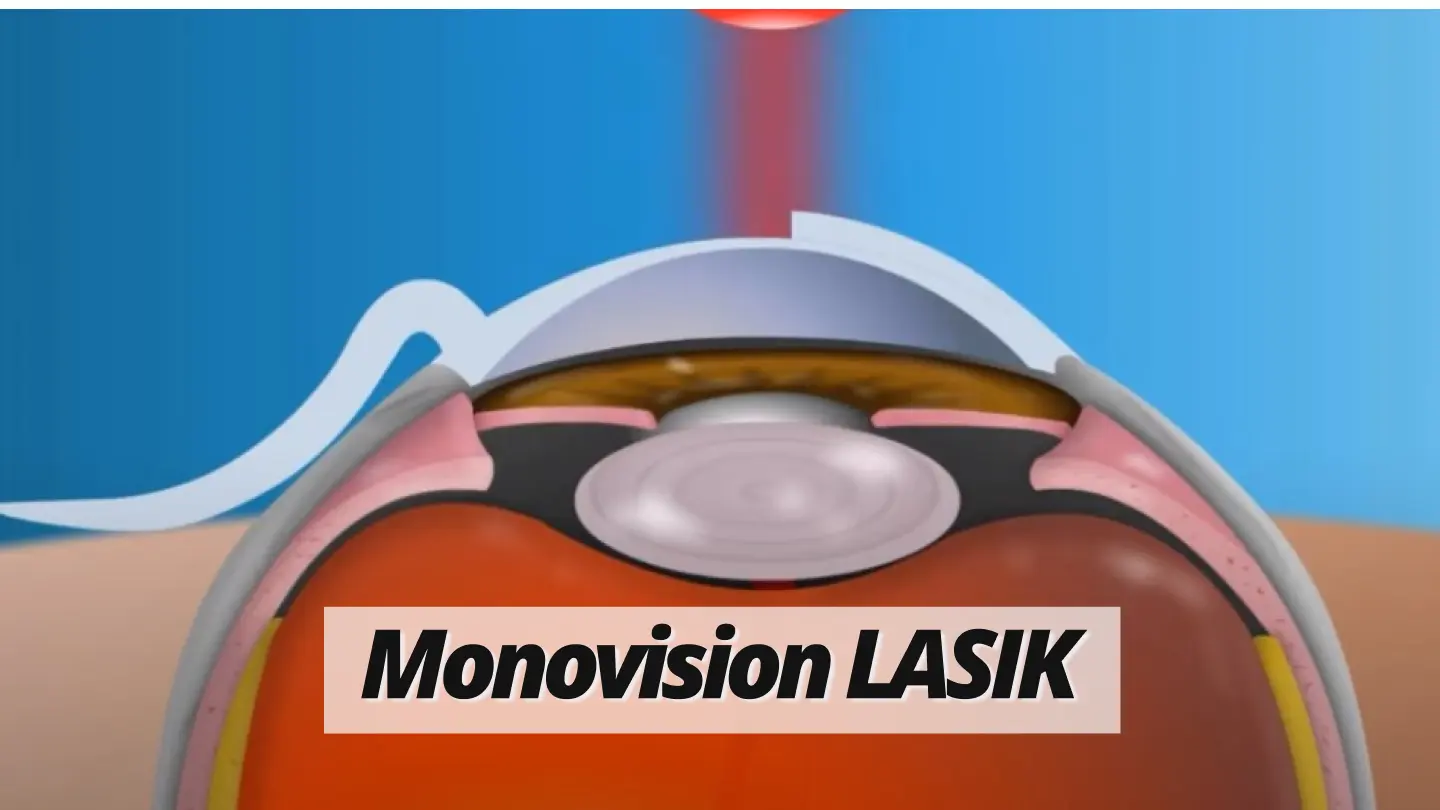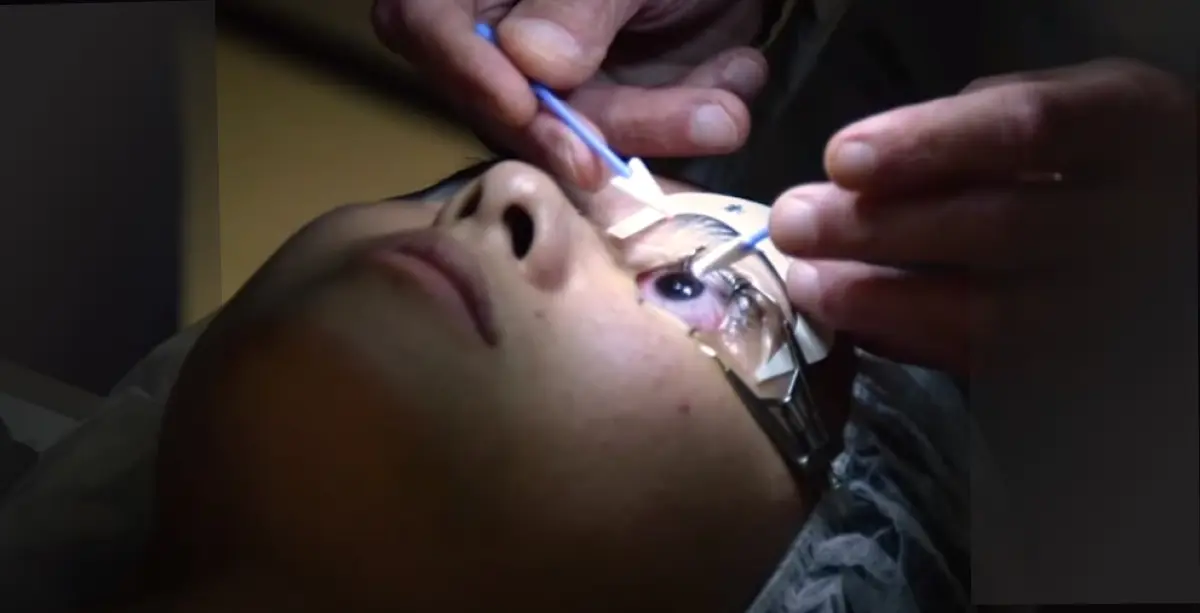Most people over 40 years of age experience visual acuity problems. Why is monovision LASIK considered the best treatment option for presbyopic and emmetropic conditions? How would it help the patient eliminate the glasses and contact lens-wearing activities?
Monovision surgery would help the patient get better vision for the myopia and hyperopia conditions of a patient’s eyes. It gives results that are as good as PRK, IOLs, and ICL to see things even at night. See how it works, the eligibility criteria, and the pros and cons, which will give you the command to make informed decisions after consultation with your eye surgeon.
Presbyopia with altered accommodation conditions:
As we grow older, our ciliary muscles, along with other optical tissues, get weaker. There is a greater chance of suffering from presbyopia if a person receives vision correction surgery after 40 (88.9% prevalence in the USA).
In monovision LASIK, surgery is conducted to treat one eye with myopia and the other with hyperopia in individuals over 40. Because of this peculiar optical behaviour, it is built differently with advanced technology to help the patient get rid of reading glasses and contact lenses. With a higher success rate, one can have improved far and near vision with this refractive surgery.
Explanation of Monovision LASIK:
Vision correction involves the removal of corneal tissues to fix refractive errors. Monovision is designed to treat both non-dominant and dominant eyes for distant and near vision, respectively. Traditional LASIK and PRK laser-assisted procedures involve reshaping the cornea by removing corneal tissues to fix refractive errors. In contrast, Monovision LASIK offers customized solutions to vision problems.
The eye surgeon will set your natural lens to see the things that could be placed nearby you and far enough that a healthy person can see without reading glasses, contact lenses and other optical instruments. Each eye gets personalized treatment for better vision with laser beams from different devices (Taneo; advanced technology).

Eligibility criteria:
You are eligible for monovision LASIK or qualify for other refractive surgeries depending on your lifestyle and the visual needs you are expecting. The standard eligibility criteria for monovision are given here;
- It would help if you were 40 years old.
- Healthy cornea.
- Living a healthy lifestyle.
- Using reading glasses and contact lenses for a long time.
You will not be eligible for monovision LASIK if you participate in high-performance entertainment activities (football, cycling, etc.). In some countries, doctors recommend laser-assisted surgery to the army individual.
Preoperative examination:
Vision correction surgery will only be performed if the eye surgeon ensures the patient is best suited for the surgery. Eye surgeons will check the ocular dominance test or slit lamp report, along with other visual tests, to ensure that you are the right person for monovision. You will be asked about your lifestyle to assess how beneficial the monovision correction surgery would be for you. The presbyopia condition ranges between 0.50 and 2.50 diopter, the ideal range where monovision gives better results.
If you are pre-operated with the traditional LASIK and have untreated nearsightedness or farsightedness, you will be considered best suited for monovision. The eye surgeon will prescribe you contact lenses to see if you are getting benefits with your vision. It will take 14 days (about two weeks) to see the variation in the visual acuity condition. It is necessary to avoid any complications after the procedure and get to know if it would affect your near or distant vision ability. It helps you stay away from reading glasses and contact lenses.
The ophthalmologist will discuss the expected outcomes of the monovision LASIK with you. Your surgeon will inform you about the compromises you must make during and after the eye surgery.
Monovision Postoperative Nursing:
Monovision LASIK treatment improves vision as this refractive surgery is an FDA-approved procedure for ametropia and emmetropia conditions. Patients must care for their eyes’ health after the surgery to avoid complications.
- Get enough sleep.
- Avoid screen for a time.
- Don’t rub your eyes even if you feel discomfort.
- Take ocular medicines as per the prescription.
- Consult with your surgeon when needed.
- Must use glasses whenever going somewhere.
A patient must notice the difference in vision ability before and after the procedure to get 20/20 or better vision. If the patient is unsatisfied with the procedure, they must discuss the condition with their eye surgeon. The surgeon will make some improvements as per the patient’s condition. Improvement surgery is sometimes mandatory, so discuss what you are feeling or experiencing after your eye surgery.
Success Rate of Monovision LASIK:
Monovision shows 20/40 visual acuity, with 88.09% better results. Patients pretreated with LASIK or PRK get 20/20 acuity for distant and sharp vision. This can vary from patient to patient. It depends on the patient’s health and the lifestyle they are living. Senior surgeons with advanced technology will increase the success rate of your refractive surgery. He can help you avoid using reading glasses and contact lenses daily.
Pros and Cons of Monovision LASIK
Pros:
- It can help you with
- Clear and sharp vision.
- Freedom from reading glasses or contact lenses.
- Avoid cloudy or blurry vision at night.
- Wipe out the glasses or contact lens expenses.
Cons:
- The complications with the monovision LASIK involve;
- Dry eyes after the surgery.
- Hazy vision in the lightening areas.
- Flap dislodging in rare cases.
Conclusion:
Personalized monovision refractive surgery proved to be the best alternative to contact lenses, glasses, and traditional LASIK. It provides improved vision to the patient with emmetropic and ametropic symptoms. If you are pretreated with LASIK and don’t get the desired results, then personalized monovision will be a great option to consider with your eye doctor’s consultation. It involves correcting the refractive error of two eyes with different refractive values. Consult with your eye surgeon and check if you are eligible for monovision LASIK or other surgeries that will be good for you.
References:
- Monovision. (n.d.). Stanford Health Care.
- Figure 5. Regional comparison in 2015: (A) graph showing presbyopia. . . (n.d.). ResearchGate.
- Peng, M., Hannan, S. et al. (2018). Monovision LASIK in emmetropic presbyopic patients. Clinical Ophthalmology, Volume 12, 1665–1671.
- Schallhorn, S. C., et al. (2017). Monovision LASIK versus Presbyopia-Correcting IOLs: Comparison of Clinical and Patient-Reported Outcomes. Journal of Refractive Surgery, 33(11), 749–758.




